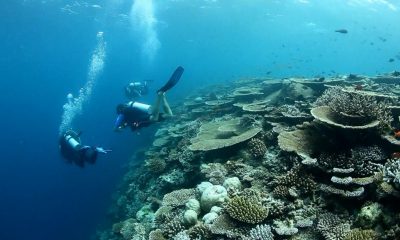Action
Ride the waves with new surf packages at Gili Lankanfushi Maldives

Gili Lankanfushi, the pioneer of sustainable, barefoot luxury in the Maldives, is giving guests a chance to surf like a pro with a series of new packages this season. Offering a variety of year-round white-water experiences for adults and children aged six and up, Gili Lankanfushi is a true surfer’s paradise for beginner and advanced wave-riders alike.
Perched within its very own turquoise house lagoon, Gili Lankanfushi provides a magical setting for first-timers finding their way around a board. For more experienced riders, the resort is just a short boat journey away from some of the Maldives’ best surfing spots, including the legendary honeymoon cove. When guests are ready to wind down post-waves, there’s even a surf remedial massage on offer at the resort’s Meera Spa.
Gili Lankanfushi’s world-class Tropicsurf instructors are on the island 24/7, ready to help guests realise their surfing ambitions. They can even fly in a professional to join expert surfers in the water if desired! Before heading out to the ocean, instructors will discuss the client’s current skill level and goals – whether they want to simply stand on the board or hang-ten, waft and reverse like Kelly Slater – creating a programme that is completely bespoke.

Providing a true bucket-list surfing opportunity for families, couples and solo travellers, the packages include:
Lagoon Lesson
Level 1 Novice (1 hour)
Learn safety and technique in Gili Lankanfushi’s calm lagoon. This lesson prepares first-timers to go to the waves. Price includes surfboard, sun cream, rash guards, towels, water, and expert coaching; just bring your bathing suit! No prior experience is necessary.
US$115/£90 per person ++
Ocean Transition
Level 2-4 Beginner/Intermediate Small Waves (3 hours)
The intermediate lesson in white water or green waves with an instructor by your side in the water. Price includes Dhoni transfer to various breaks, surfboard, sun cream, rash guards, towels, water and expert coaching and daily surf report.
First Surf US$255/£175 per person ++; additional surf US$490/£375 per person ++
Ticket to Ride
Level 5-10 advanced surfers (3 hours)
Let Gili Lankanfushi take you to the best available waves of the day, depending on conditions. Price includes Dhoni transfer to various breaks, sun cream, rash guards, towels, water and expert coaching and daily surf report.
First Surf US$165/£126 per person ++; Additional surf US$235/£180 per person/day
Surf ‘n’ Spa
For those wishing to unwind and soothe tired muscles after a day on the water, Gili Lankanfushi’s Meera Spa offers a very special Surf Remedial Massage treatment that has been specifically created to ease any post-surf aches. After a physical day catching waves, this is a much-needed 60-minutes of pampering to restore energy levels. Special remedial techniques with firm to deep pressure combined with stretching through muscle tissues with therapeutic balm will relieve and loosen tension in the neck, shoulder, lower back, and arms.
There are even yoga techniques and breathing exercises available for guests to tune their mind and posture to help catch the perfect wave!
Gili Lankanfushi enjoys an unspoilt island location in the Maldives’ North Malé Atoll, just 20 minutes by speedboat from Malé Airport, with direct flights from London now available. Perfectly suited for couples, families, solo travellers and groups alike, the resort combines rustic eco-design, unparalleled service and stunning natural scenery with a laid-back-luxury, ‘no news, no shoes’ philosophy.
Nightly rates at Gili Lankanfushi start from £1,070/$1,440, based on two adults sharing a Villa Suite including breakfast. For more information or to book please visit www.gili-lankanfushi.com
Action
Bestbuy Maldives supports health, wellness as Main Sponsor of MNU Marathon 2026
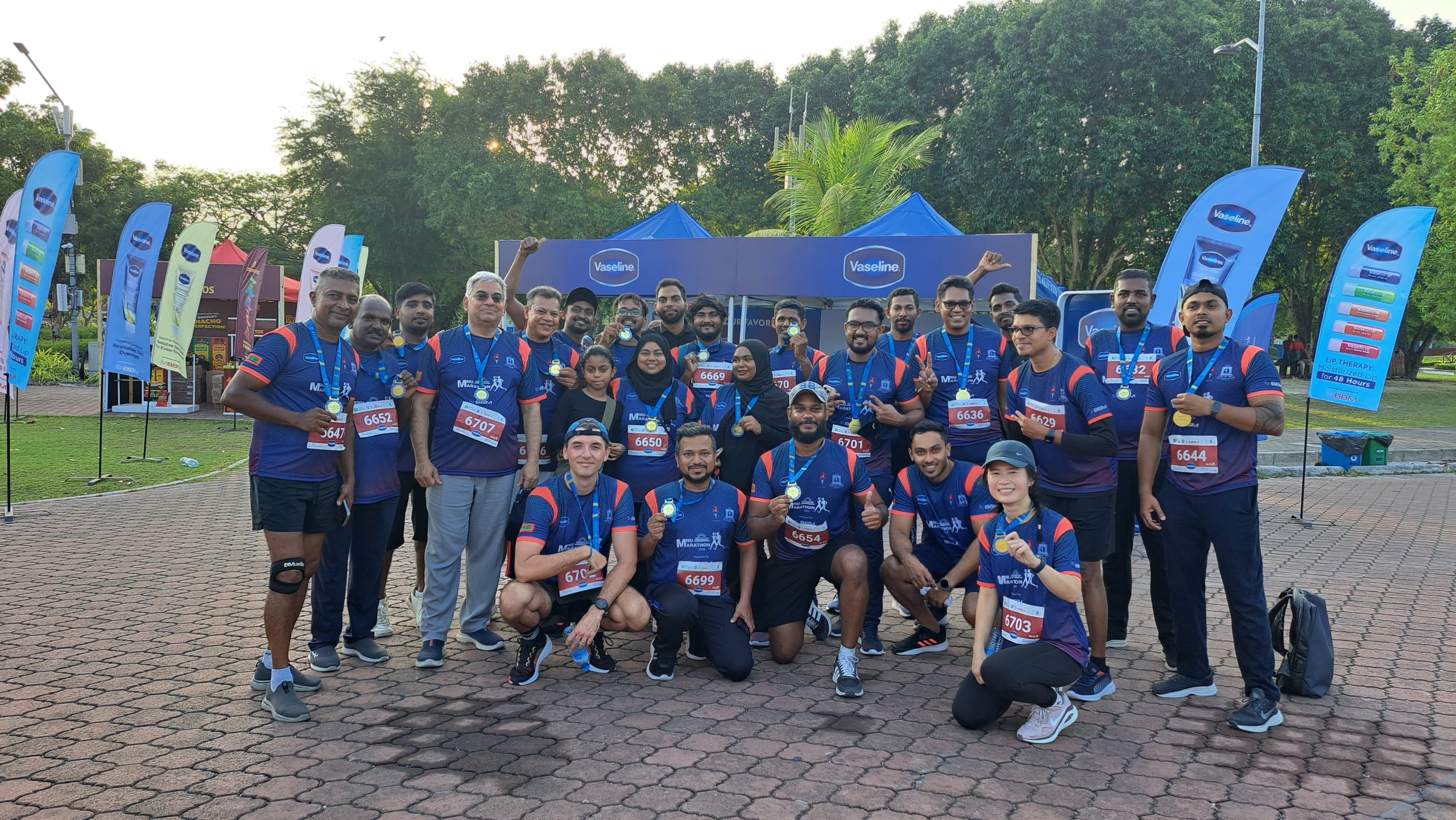
Bestbuy Maldives (BBM), one of the Maldives’ leading and most trusted distribution partners to the hospitality and retail sectors, served as the Main Sponsor of the MNU Marathon 2026, organised by Maldives National University (MNU) and held in Hulhumalé on 13 February. The event drew over 1,500 runners and focused on promoting fitness, health and wellness, active lifestyles, and community unity, as part of a long-term sponsorship arrangement.
As Main Sponsor, BBM maintained a strong on-ground presence throughout the marathon, with high brand visibility and activations designed to engage participants and spectators.
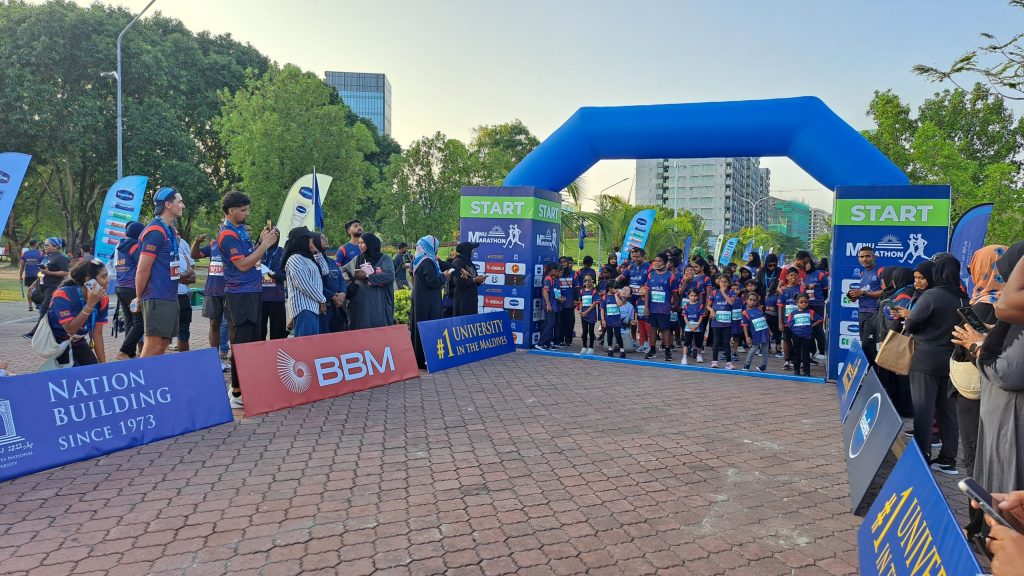
A key highlight was BBM’s collaboration with Unilever – Vaseline, with free product samples distributed to all marathon participants, reinforcing messages around skincare. Additional brand activations included a dedicated Cornitos stall offering free nacho samples, and a Godrej Aer booth focused on product sampling and brand awareness. BBM also distributed Cavin’s milkshake samples to runners at the finish line.
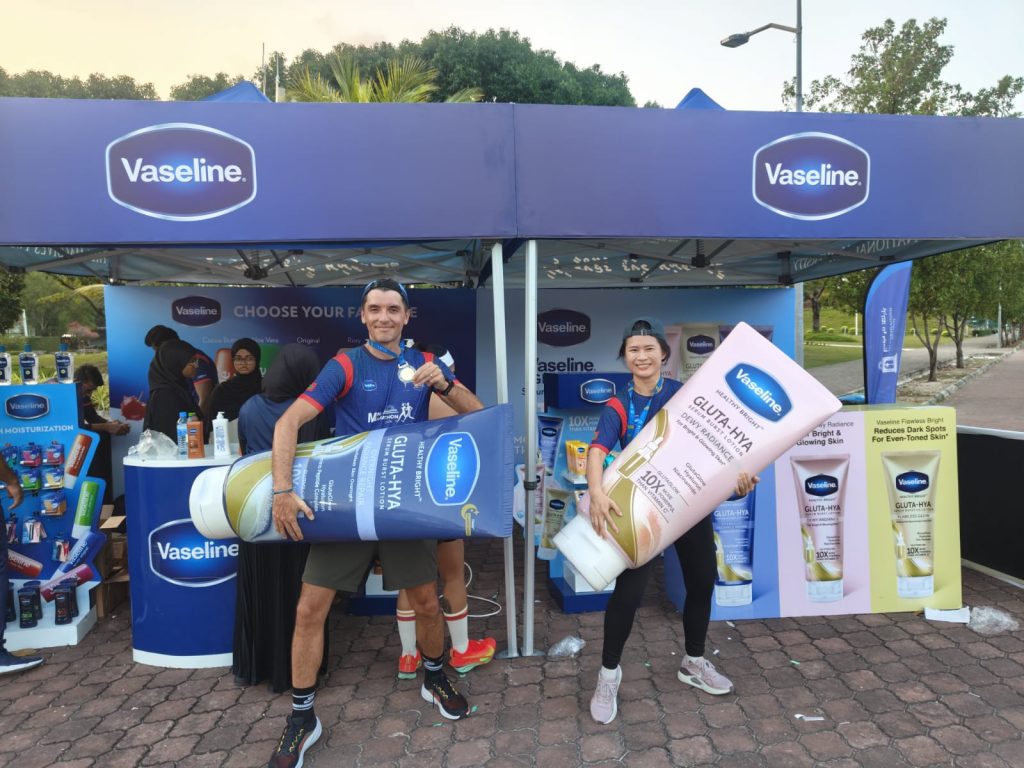
BBM’s participation extended beyond sponsorship, with more than 50 BBM employees taking part in the marathon as runners. Representatives from Unilever International also joined the run, underscoring a shared commitment to wellbeing and community engagement.
“Supporting the MNU Marathon aligns closely with BBM’s commitment to healthier communities and meaningful national partnerships,” said Ali Afrah Hassan, Head – Human Resources, Administration & Corporate Affairs at Bestbuy Maldives. “It was especially rewarding to see our colleagues participate as runners alongside the wider public, demonstrating that wellbeing is part of our culture, not just our sponsorship. We are proud to work with MNU to create a positive platform that brings people together around health, wellness and unity.”
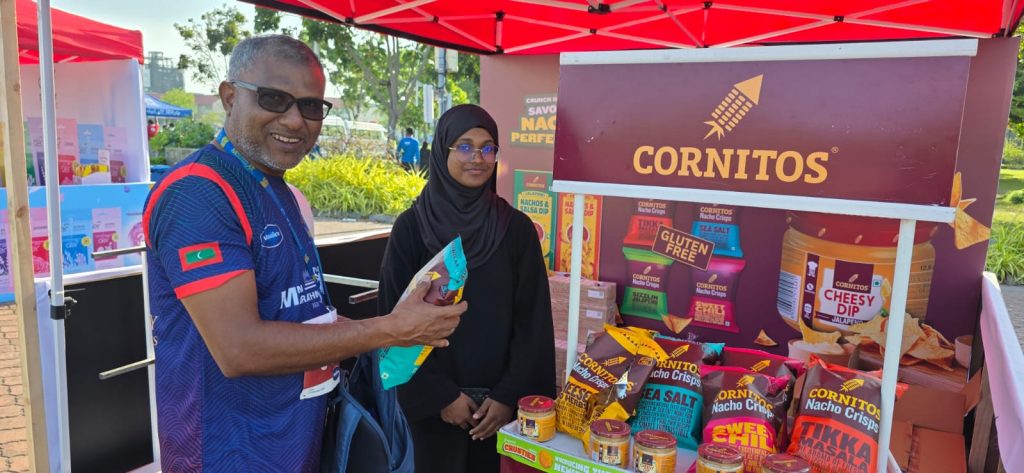
Through its portfolio of internationally recognised FMCG and consumer lifestyle brands—spanning food and beverage, personal care, and home care—BBM continues to support initiatives that create shared value for communities, partners and customers across the Maldives. The company’s involvement in events such as the MNU Marathon reflects BBM’s broader commitment to championing positive lifestyles, strengthening local partnerships, and backing platforms that bring people together with purpose.
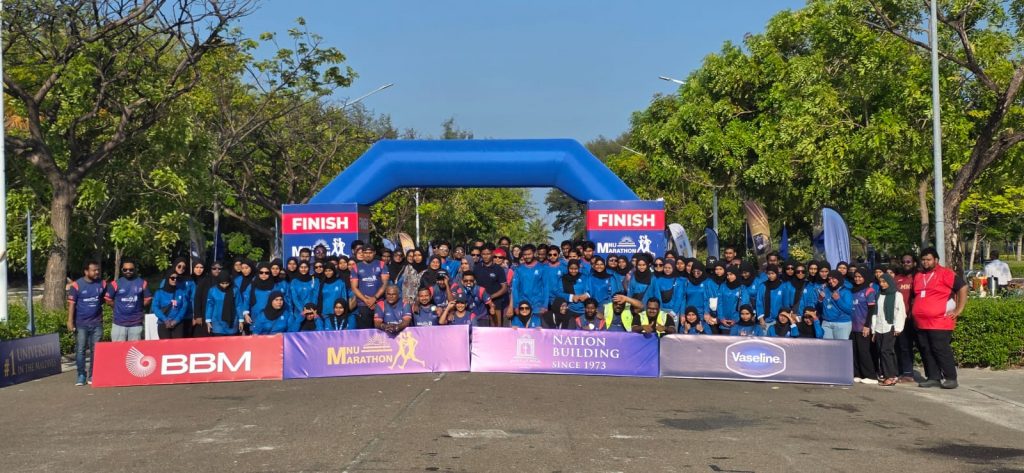
BBM noted that the event strengthened its partnership with Maldives National University and provided an opportunity to connect directly with the Maldivian community in an uplifting setting, reinforcing BBM’s role as a responsible corporate partner supporting national initiatives.
Action
LUX Tennis joins St. Regis Maldives Vommuli to expand active lifestyle programme
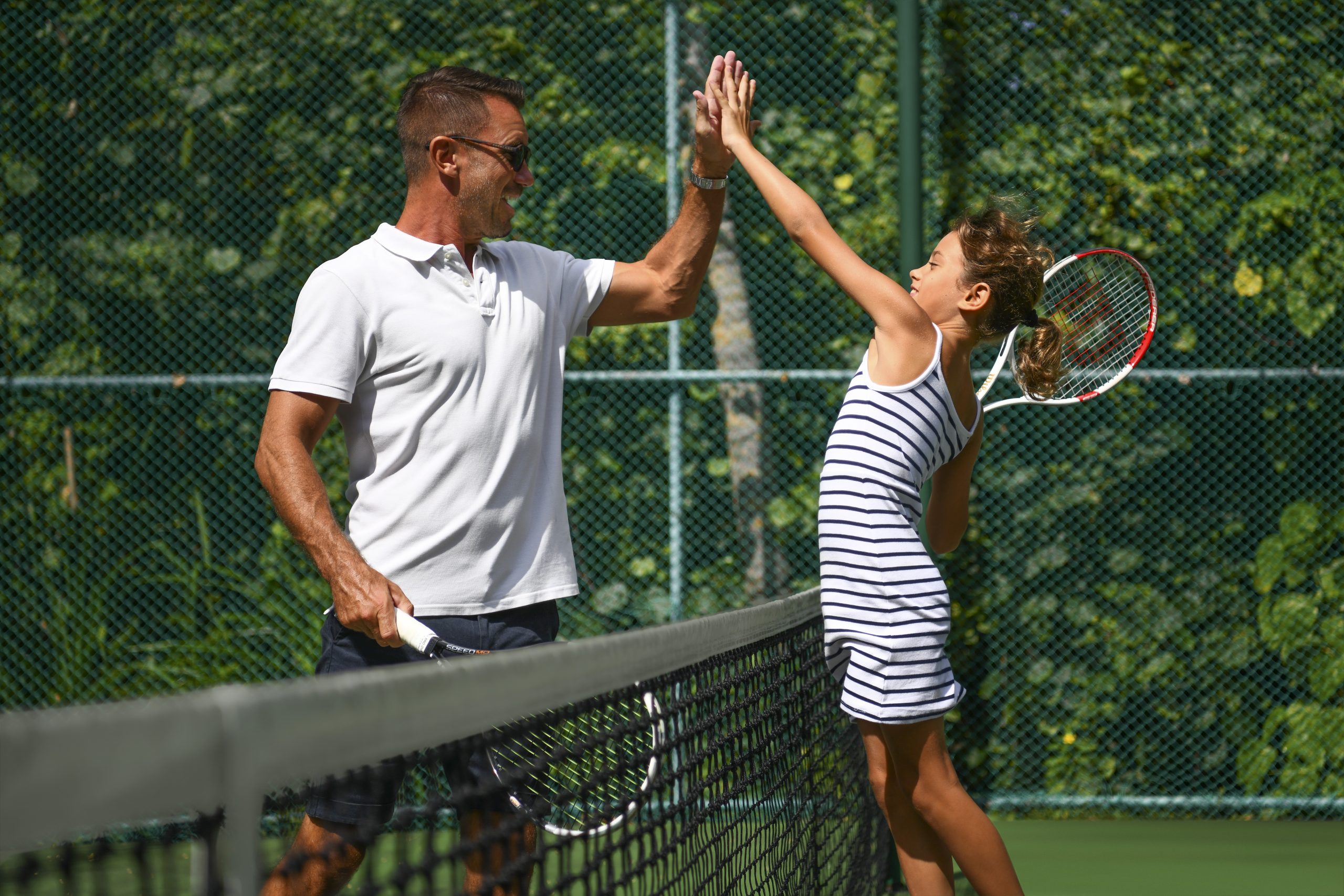
St. Regis Maldives Vommuli Resort has announced a partnership with LUX Tennis, strengthening the resort’s established tennis offering and introducing plans for a new padel court. The collaboration expands the resort’s active lifestyle programme, with a particular focus on families and multi-generational travel.
The St. Regis brand draws on the legacy of the Astor family, founders of the original St. Regis New York, whose Gilded Age lifestyle celebrated refined leisure and sporting pursuits. Tennis, in particular, became a symbol of elegance within the Astor social circle, reflecting a culture shaped by hospitality, recreation and sophistication. This heritage continues across the St. Regis portfolio today, where classic sports remain an integral part of the brand’s identity.
Set within the resort’s private island environment, the enhanced LUX Tennis programme is designed to elevate on-island tennis experiences for guests of all ages and skill levels. The programme features expert-led coaching, bespoke clinics and visiting residencies by internationally recognised professionals, offering guests opportunities to train, play and engage with elite talent in an accessible and inspiring setting.
Confirmed visiting professionals include Angelique Kerber, three-time Grand Slam champion and former world number one, who will visit from 29 to 31 March 2026, and Feliciano López, former Spanish champion with a career-high singles ranking of world number 12, scheduled from 16 to 17 May 2026.
The expanded tennis programme is designed to integrate seamlessly with island life, offering everything from relaxed family matches and junior-friendly coaching to more focused sessions for experienced players. Activities are structured to complement time spent at the beach, spa experiences and family dining.
The St. Regis Maldives Vommuli Resort features 77 beachfront and overwater villas, each with a private pool, alongside facilities such as the John Jacob Astor Estate, the largest overwater three-bedroom villa in the Maldives. Guests also have access to the award-winning Iridium Spa, six dining venues and a private yacht available for charter, reinforcing the resort’s positioning as a destination for both leisure and active pursuits.
Action
InterContinental Maldives Maamunagau Resort launches ‘Swim with Nurse Sharks’ experience
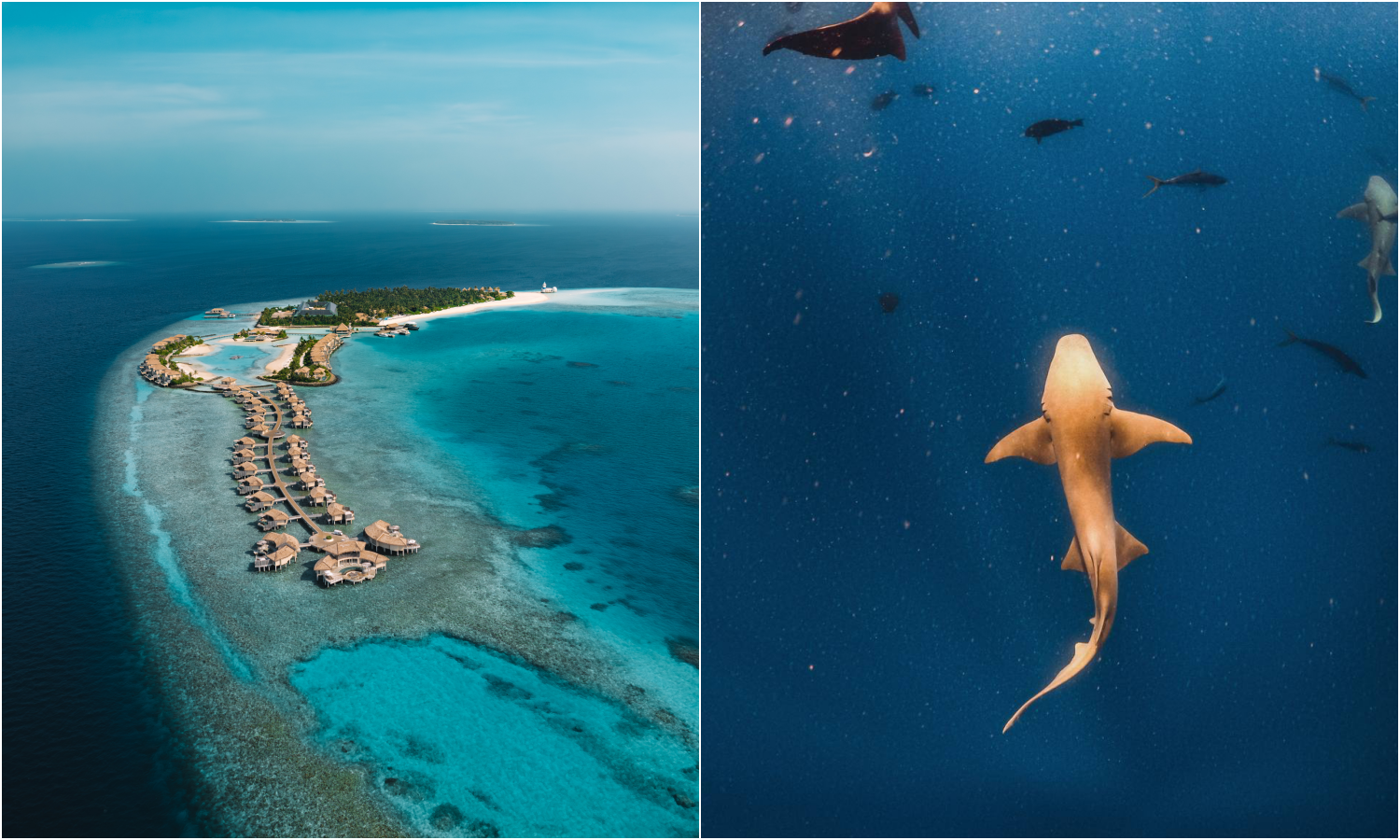
Nestled in the pristine waters of the Raa Atoll, InterContinental Maldives Maamunagau Resort introduces Swim with Nurse Sharks, a new guided marine experience offering guests a rare opportunity to encounter these gentle creatures in their natural lagoon habitat.
Located just minutes from the island, the calm, shallow waters provide ideal conditions for observing nurse sharks at rest and in motion. The one-hour experience operates three times a week by speedboat and is designed for small groups, making it suitable for families and confident swimmers seeking a meaningful connection with the ocean.
Guided with care and respect for the environment, the experience reflects the resort’s ongoing commitment to marine awareness and responsible interaction with wildlife. Guests gain insight into the behaviour of nurse sharks while exploring one of the region’s few accessible snorkelling sites dedicated to this species.
Available at USD 95++ per person, with special rates for children under 12, Swim with Nurse Sharks adds a distinctive new chapter to the resort’s immersive ocean experiences.
For more information on “Swim with Nurse Sharks” at InterContinental Maldives Maamunagau Resort, please visit the resort’s website.
-
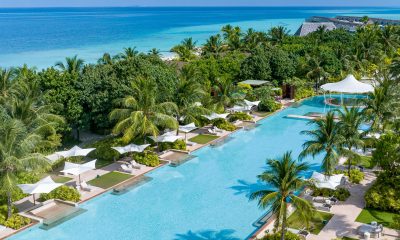
 Culture1 week ago
Culture1 week agoKuda Villingili presents family-focused Eid al-Fitr experience in Maldives
-

 Cooking1 week ago
Cooking1 week agoMichelin-starred Chef Jaume collaborates with One&Only Reethi Rah’s TAPASAKE for four-hands dinner
-
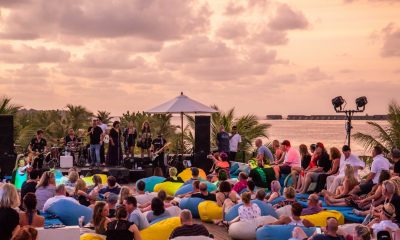
 Entertainment1 week ago
Entertainment1 week agoStrong demand sees Kandooma Maldives 2026 concert series selling out early
-
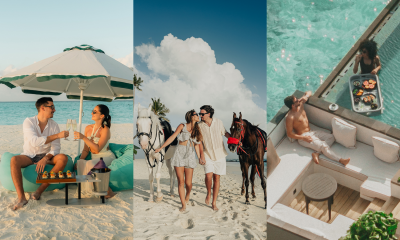
 Featured1 week ago
Featured1 week agoSun Siyam Resorts marks Valentine’s season with multi-resort celebrations
-
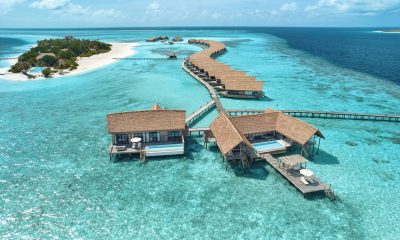
 Love1 week ago
Love1 week agoCOMO Cocoa Island, COMO Maalifushi unveil Lunar New Year, Valentine’s Day celebrations
-

 Featured6 days ago
Featured6 days agoCoco Bodu Hithi and Coco Palm Dhuni Kolhu curate distinct Valentine’s escapes
-
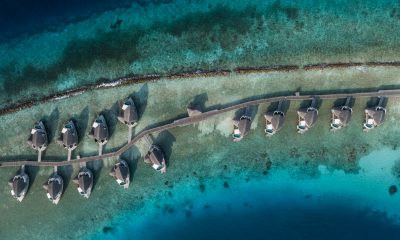
 News5 days ago
News5 days agoJW Marriott Maldives Resort & Spa invites families to celebrate Eid Al-Fitr in island luxury
-
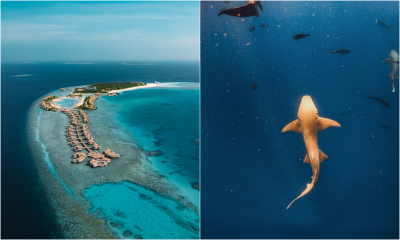
 Action5 days ago
Action5 days agoInterContinental Maldives Maamunagau Resort launches ‘Swim with Nurse Sharks’ experience





